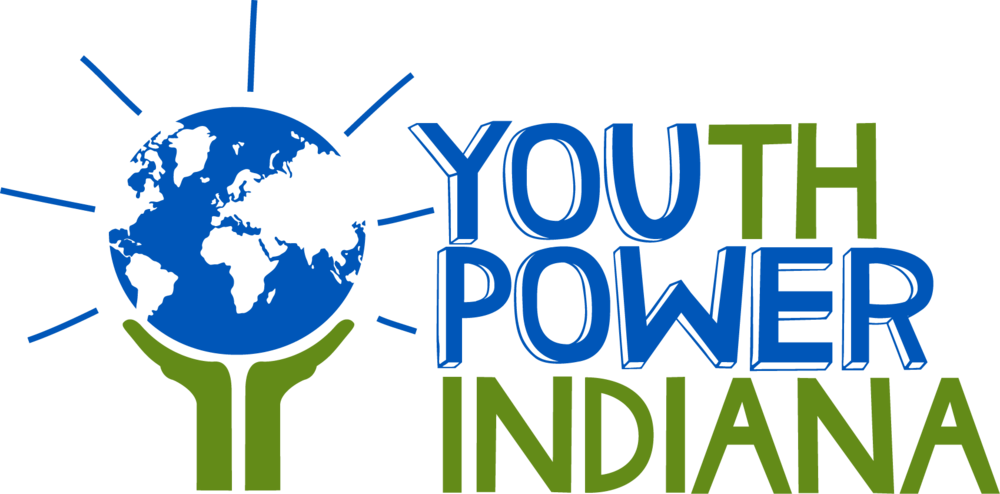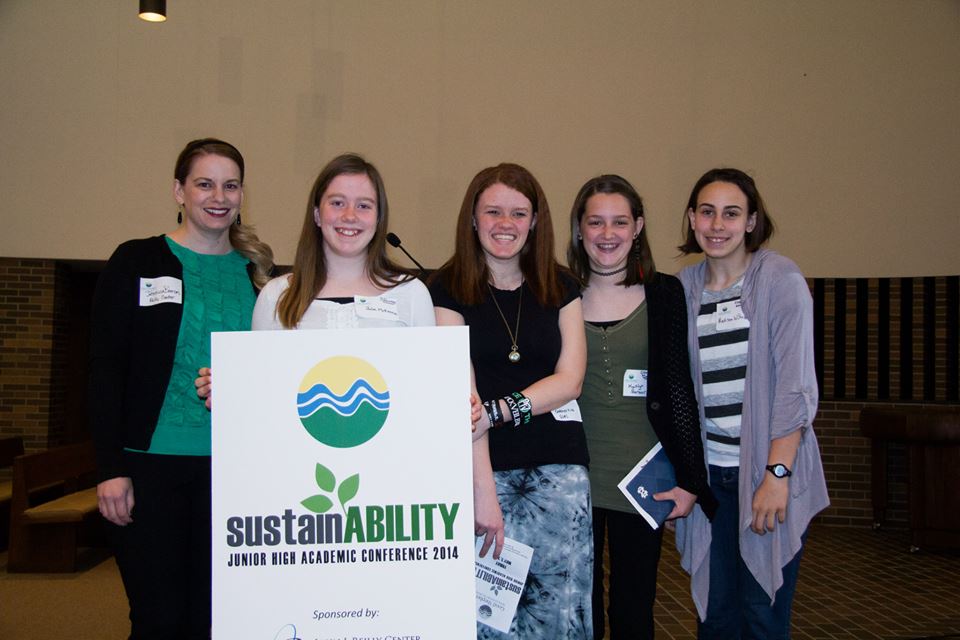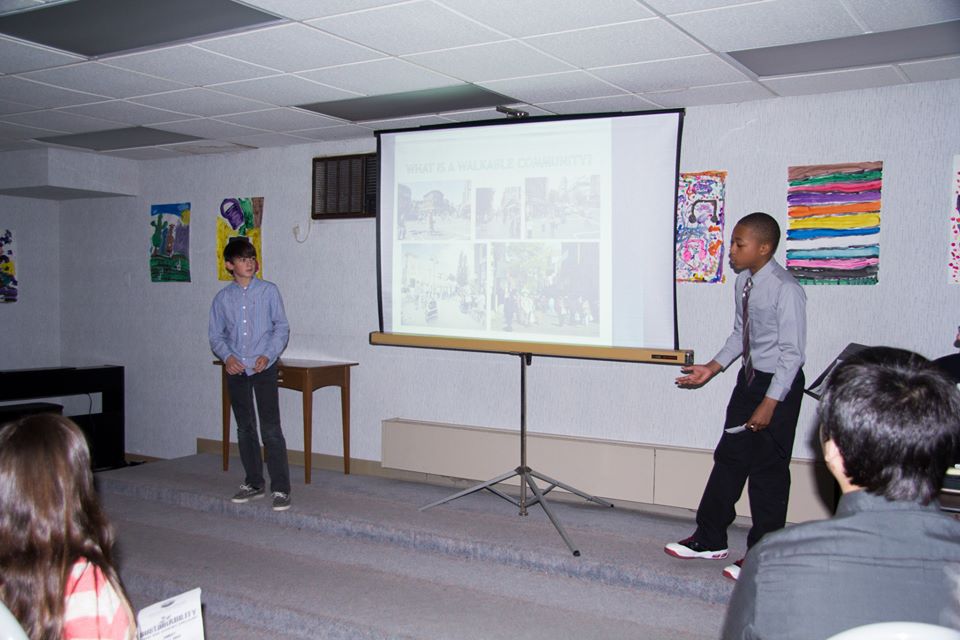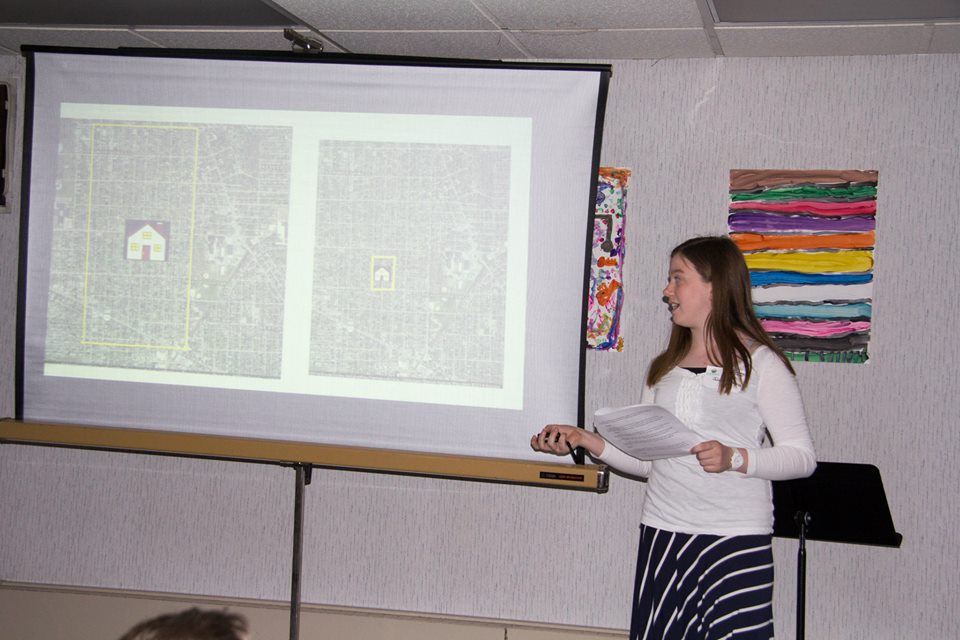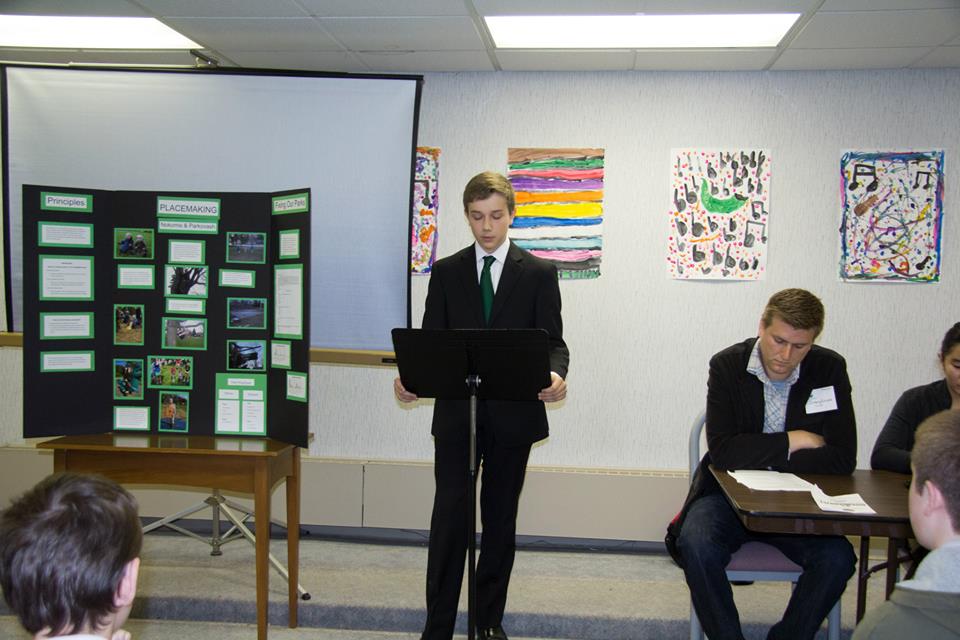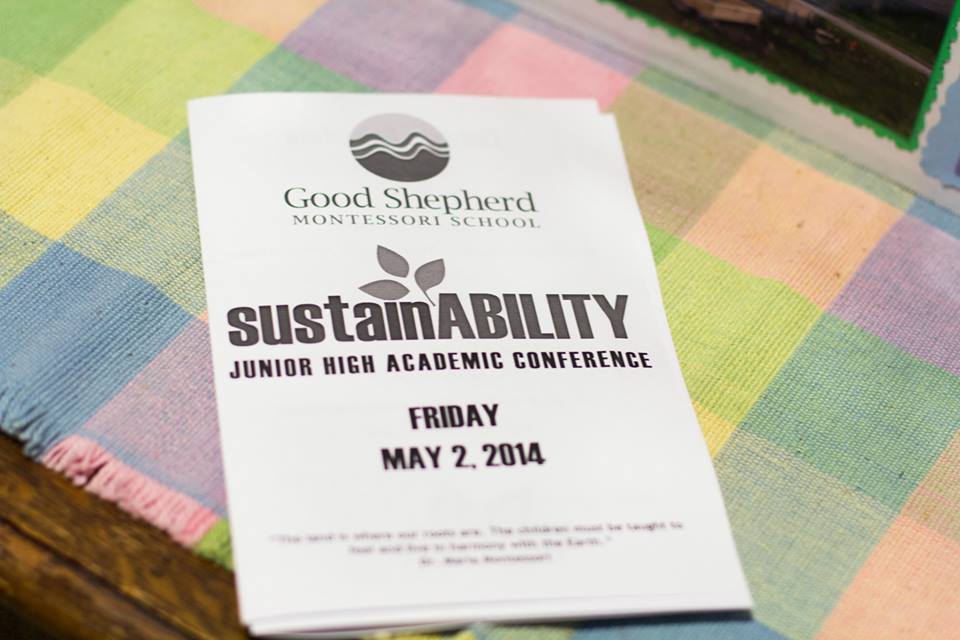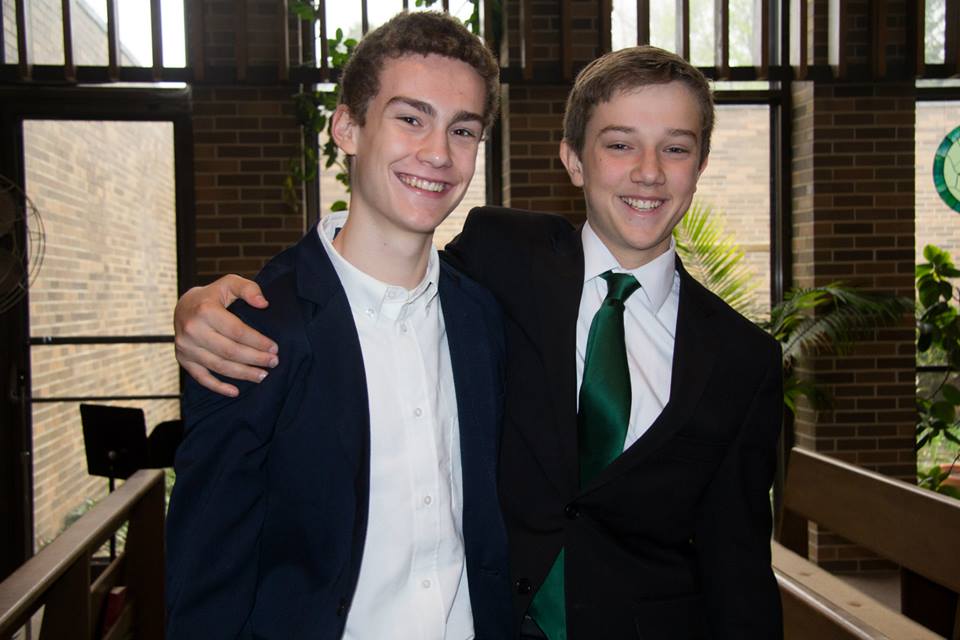Editor's note: The following is a report by Good Shepherd Montessori School student Julia McKenna. We share in hopes that you'll be inspired to throw your own conference!
Good Shepherd Montessori School is a small school in South Bend, Indiana serving children ages three to fourteen, where there is a unique sense of community and connection to the earth. Arriving in second grade, I felt welcome in this open, loving environment, and I have continued to feel at home ever since. What I didn’t learn until Junior High though, was how a community is built, and how the community members stay connected to each other and to the earth.
Every year our seventh and eighth grade class holds an academic conference where local middle school students and professionals learn and share information about a specific topic. In the first two years, the conference focused on Fundamental Human Rights and World Religions in Theory and Practice, and this year’s topic was Sustainability. We put out a call for papers and invited local schools to participate in the conference, and this year another Montessori school and a homeschool group from our area attended. In past years, the conference has been on a low budget, but this year we were able to provide lunch, a snack, print materials, and give gifts of appreciation to our speakers and professionals, thanks to the generosity of the Ursula Thrush Peace Seed Grant and a sponsorship from the Reilly Center for Science, Technology, and Values at the University of Notre Dame.
When I heard the topic for this year was going to be Sustainability, I was quick to sign up for the Academic Committee. Fittingly, I have a particular interest in Jane Goodall and staying connected to the earth. I suggested that we invite her to our conference; I wrote her a letter, and within a few weeks I received a handwritten response. Even though Dr. Goodall was not able to join us, her letter made me feel like the possibilities were endless and this was going to be a great conference.
As part of our preparation for the conference, this year’s committee researched other conferences and even attended Greentown Michiana, a conference dedicated to promoting a more sustainable community in South Bend. Then, with our gathered knowledge, we planned breakout sessions and invited schools and professionals. Each of the twenty-three students in our class and those from other schools chose a topic, did research and created a multi-intelligence project to present at the conference. These were presented alongside other students with similar topics in panel form during breakout sessions. Each presentation had unique links to community-building and growing sustainable connections. A local foods project encouraged participants to get to know farmers from their area, a place-making project hit on creating good public gathering spaces, and all of the presentations encouraged us to care for the spaces in which we live, work, and play.
To stay true to our topic of sustainability and the mission of our school, we wanted to provide a local organic lunch for our guests. We had to work around the school’s hot lunch schedules and account for a large number of attendees, which called for flexibility and planning. With the help of our hot lunch coordinator, we spent multiple afternoons in the fall creating pasta sauce with local organic tomatoes, which we froze until the spring. As the conference date drew closer, we made pesto with fresh basil and an organic alfredo sauce. Paired with whole wheat pasta and spring greens, we created a local, organic pasta bar.
Our South Bend community has an abundance of people working in the sustainability field. We connected with six local experts: Theri Niemier from Bertrand Farms, Charlotte Wolfe from Prairie Winds Nature Farm, Chris Dressel, Planner/Bicycle Coordinator for the City of South Bend, Zachary Schrank and Krista Bailey from Indiana University South Bend, Tyler Kanczuzewski from Inovateus Solar, and Jim Poyser from Earth Charter Indiana. The committee composed emails, set up personal meetings, and worked with the professionals on the presentations and panels before the day of the conference. Many of the professionals have continued to stay connected with us, informing us of local events, and offering great resources for research and learning opportunities.
On Friday, May 2nd, we welcomed over seventy-five students and professionals from the community. During the conference, Theri Niemier gave the keynote speech, which was followed by several panels that included twenty-three student presentations, ranging from walking and biking to nuclear fusion to genetic modification. After lunch we gathered to play Jim Poyser’s Ain’t Too Late climate change game show, an inspirational conclusion to our conference. (To read Jim's take on the conference, go to his blog.)
The conference helped me understand how a community stays connected, and I realized that I had made my own contributions. People in a community are able to learn from each other and share knowledge. They are able to love each other and the environments around them, and to create a safe, peaceful environment for people to persevere and grow. They live and act sustainably, and most of all, they do it all for each other -- to stay connected. Consistent with Good Shepherd Montessori School’s mission, these are all things that “foster world peace and work toward global justice” and create a sustainable, connected community.
–Julia McKenna
7th Grade Student, Good Shepherd Montessori School | South Bend, Indiana
